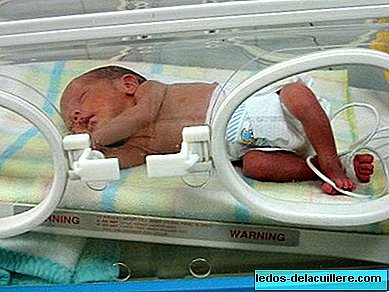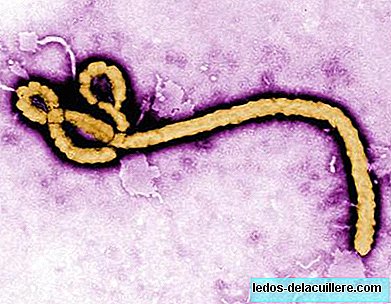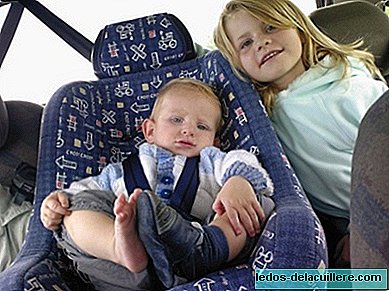
Some time ago we talked about Early Care: what it is, what treatments are performed and how it can be accessed.
It is the turn to talk now about the beneficiaries of this preventive service. For this we will talk about children with high biological risk, children at psychosocial risk and children with documented alterations.
All children between zero and six years of age who manifest any type of deficiency and those who are within the groups of high biological, psychological and / or social risk are susceptible to receive Early Care treatment.
Children of high biological risk
Here would be all those children who may be affected by their process of maturation and biological development, not only because of the harmful organic consequences for the child himself, but also because of the repercussions they have on the parents.
Early childhood pathologies that lead to alterations often damage the parents' perception of their role and their effectiveness as appropriate caregivers, which interferes with the development of the mother / father-child relationship and, as a consequence, on the child's development.
The detection and early attention of these children and their difficulties in reaching a normal course of development are key elements to optimize their progress.
The biological risk factors that are taken into account are the following:
- Newborn of neurological risk: newborn with weight less than 1,500 grams or gestational age less than 32 weeks, APGAR test less than 3 a minute or less than 7 at 5 minutes, newborn with mechanical ventilation more than 24 hours, seizures, brain damage, chromosomopathies and other syndromes, mother's son with mental pathology and / or infections and / or drugs that may affect the fetus ...
- Newborn of sensory-visual risk: prolonged mechanical ventilation, great prematurity, newborn weighing less than 1,500 grams, hydrocephalus, congenital infections of the central nervous system, cranial pathology ...
- Newborn with auditory sensory risk: great prematurity, newborn weighing less than 1,500 grams, congenital infections of the central nervous system, syndromes, family history of hearing loss, postnatal infections of the central nervous system, severe asphyxiation ...
Children at psychosocial risk
They are all those children whose family and social context in which they develop is altered, there is extreme deprivation or with unhealthy social and emotional circumstances for the proper development of the child.
The situation of social deprivation alters and affects both the context of parenting and early interactions.
Socio-family risk is always assessed, since it is perhaps the risk variable that most affects the mortality that occurs before childbirth and the number of children who are sick or who are suffering from some type of disease before childbirth.
The risk criteria that must be taken into account are: socioeconomic level, accidental traumatizing pregnancy, conflicting coexistence or traumatizing separation in the family nucleus, parents of low intellectual quotient or non-stimulating environment, serious diseases, alcoholism and / or drug addiction, prostitution, delinquency , teenage mothers, suspected abuse, children in children's homes ...
Certain environmental deficiencies make it difficult or impossible for the family to properly educate their child. This difficulty is much greater if the educational needs that the child requires are greater or there is a risk of alterations or sequelae during the first six years of life that hinder its correct development.
Children with documented alterations
Here we have children with documented delays, alterations or disabilities (whether cognitive, motor, communicative, linguistic, social or sensory).
It is crucial to start the intervention at the same time of birth or from the moment the deficit is detected.
The most common developmental disorders are:
- Motor development disorder
- Cognitive Development Disorder
- Language development disorder
- Sensory development disorder
- Generalized development issue
- Conduct disorder
- Emotional disorders
- Evolutionary delay
The concept of risk makes us think about the idea of probability, thus having a group of more vulnerable children in which it can create a deficit or alteration in their development, in some cases permanent.
For all this, early care for families and early detection of the needs of high-risk childrenWhen these factors are detected or when their development deviates from normality, it is essential.












